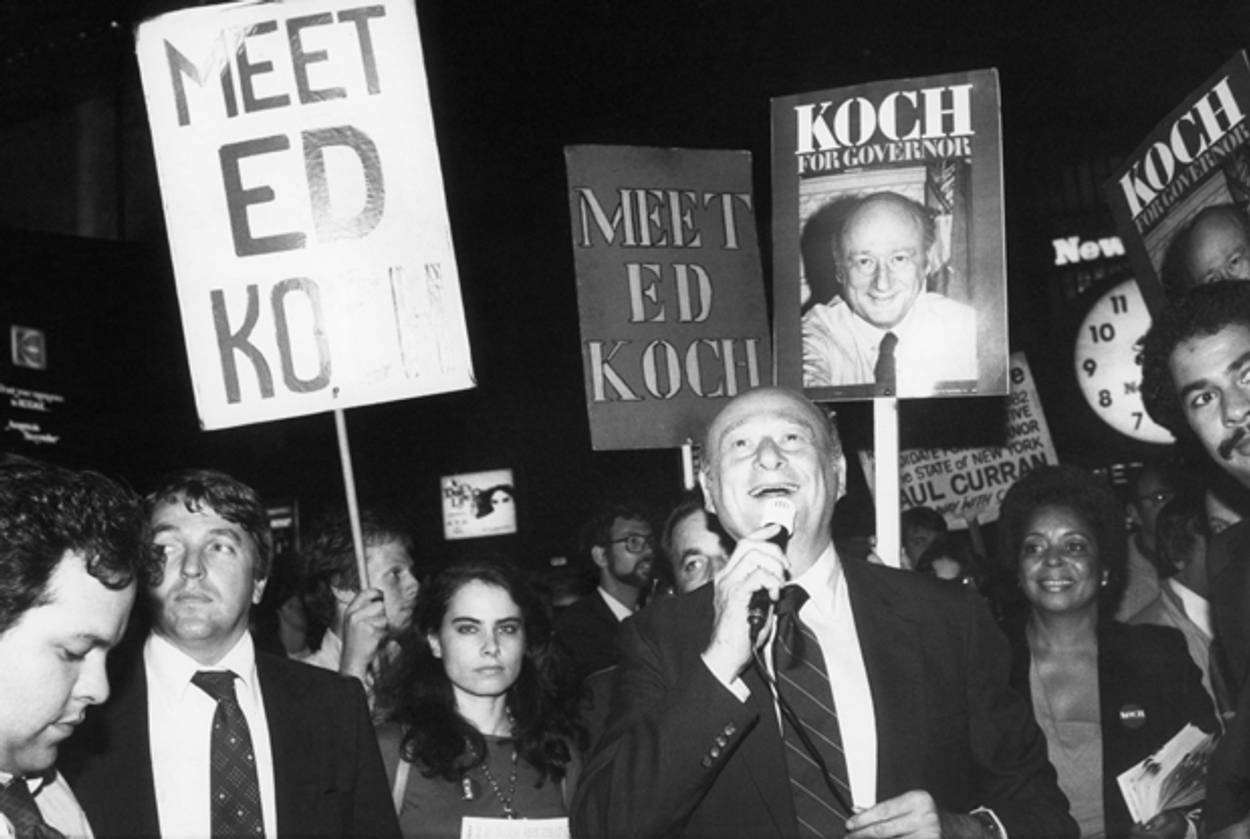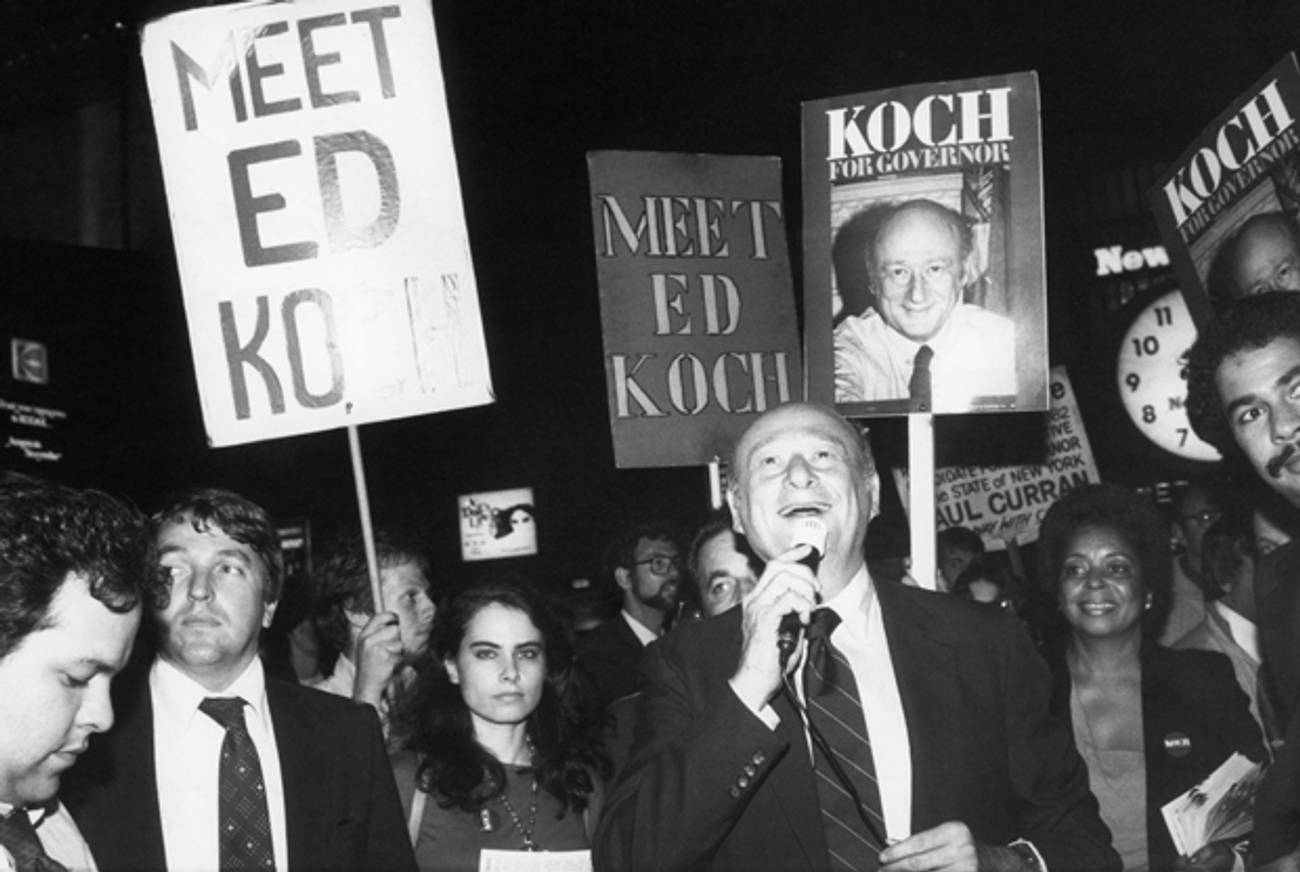New ‘Koch’ DVD Out For NYC Mayoral Election
Talking to director Neil Barsky about Hizzoner’s enduring political legacy




You can’t tell the story of New York City’s transformation in the 1980s without mentioning former mayor Ed Koch. In his quest to chronicle the New York City of that era, director Neil Barsky couldn’t think of a person whose story better exemplified the times than Koch—and the result was his 2012 documentary, Koch. I recently sat down with Barsky to talk about the film’s DVD release, which coincides with the final stretch of the 2013 New York City mayoral race.
Why Ed Koch? What about his story do you think has such a universal appeal?
I think Ed Koch was one of the most compelling political figures we’ve ever had. He really was the first national mayor the country has ever seen. His political style was so contrary to everything we see today. He told the truth, he didn’t care what people thought. He was very funny and inappropriate, and those were great qualities and terrible qualities in certain contexts.
We had the opening premiere at the Museum of Modern Art this past January and every political candidate showed up. They all wanted his endorsement, but he was in the hospital. Koch had endorsed Christine Quinn, but they had no video footage of him endorsing her. We got calls from people who wanted to use video footage of Koch endorsing Quinn from the DVD’s Q&A session.
De Blasio, Thompson, and Quinn have all sort of claimed his legacy in some ways, understandably. It has resonance today, which is partly why we’re releasing the DVD during the thick of the campaign. At the end of the day, though, good movies are about good characters and good stories.
His political style and approach was humble and down-to-earth, but at the same time he was larger than life. Do you think anyone in politics today captures that spirit?
Chris Christie seems to be the person who is compared to Koch because he does a lot of street engagement with people. But Christie loses his temper. I don’t know any politician who uses humor the way Koch did. There are very few people who are funny in public life as Koch was.
How do you think his fierce belief in his Jewish identity shaped Koch as a politician?
He would always refer to himself as a proud Jew and was always incredibly supportive of Israel. Ethnically he was obviously Jewish, but he would rarely evoke his Jewishness as mayor. I don’t think he had a particularly close relationship with the Jewish community as compared to other communities. He was Jewish, he was proud, but the groups that voted for him in the highest numbers percentage wise were Irish-Americans and Italian Americans, since a lot of Jewish liberals didn’t particularly like him.
On the other hand, I think his Jewishness was sort of inseparable from who he was. Did he go to synagogue? Sure, but only on the High Holidays. In the film, there’s a Yom Kippur break fast scene with Koch and his family where someone asks him how his fast went. He replies, “I had a very easy fast,” implying, I think, that it was easy because he wasn’t fasting. He did things his own way.
He seemed to love his family and be very much at ease with them in that scene, but he also seemed content to return to his life alone.
As Joyce Purnick says, “The city was his family.” Very few prominent people want to walk down the street and be recognized. He loved it. He would stop and talk with people and was always very gracious; he loved the attention. It could be because he was alone, it could be because he had a huge ego, but you’re right, he needed the spotlight till the end.
In the film he takes a trip to view his gravestone, which is especially moving since he died the day of the film’s release. What was it like to visit his gravesite with him?
He played it for laughs. During the interview when he and Diane Coffey are driving up to the cemetery, he was just making jokes. It wasn’t somber. He was a pro; he read his epitaph for us and made small talk, but then she was giving him a hard time about having written his own epitaph. It was very lighthearted. My favorite line is when he says, as they’re leaving the cemetery, “I don’t walk as well as I used to,” and she replies, “What do you want, you’re 86?” He says, “More, better.” And that sort of sums up what we all want, which is for life to be longer and better.
Related: As New York City Mayoral Race Limps to a Finish, What’s Missing? Ed Koch.
How Ed Koch Honored My Son
Hizzoner
Previous: A Final New York Moment With Ed Koch
Ed Koch ‘Not Liberal Enough for the West Side’
Jillian Scheinfeld is a journalist living in New York City.